This list of Dublin City University faculties, schools, research centres and laboratories covers the university's diverse and interdisciplinary research interest.
This list of Dublin City University faculties, schools, research centres and laboratories covers the university's diverse and interdisciplinary research interest.
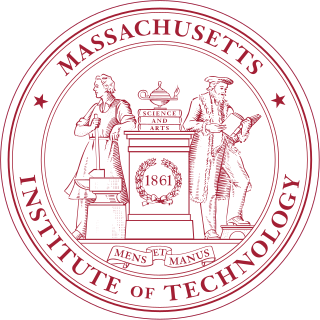
The Massachusetts Institute of Technology (MIT) is a private land-grant research university in Cambridge, Massachusetts. Established in 1861, MIT has played a significant role in the development of many areas of modern technology and science.
Psychology is the study of mind and behavior. Its subject matter includes the behavior of humans and nonhumans, both conscious and unconscious phenomena, and mental processes such as thoughts, feelings, and motives. Psychology is an academic discipline of immense scope, crossing the boundaries between the natural and social sciences. Biological psychologists seek an understanding of the emergent properties of brains, linking the discipline to neuroscience. As social scientists, psychologists aim to understand the behavior of individuals and groups.

Purdue University is a public land-grant research university in West Lafayette, Indiana, and the flagship campus of the Purdue University system. The university was founded in 1869 after Lafayette businessman John Purdue donated land and money to establish a college of science, technology, and agriculture in his name. The first classes were held on September 16, 1874, with six instructors and 39 students.
Political science is the scientific study of politics. It is a social science dealing with systems of governance and power, and the analysis of political activities, political thought, political behavior, and associated constitutions and laws.

Research is "creative and systematic work undertaken to increase the stock of knowledge". It involves the collection, organization and analysis of evidence to increase understanding of a topic, characterized by a particular attentiveness to controlling sources of bias and error. These activities are characterized by accounting and controlling for biases. A research project may be an expansion of past work in the field. To test the validity of instruments, procedures, or experiments, research may replicate elements of prior projects or the project as a whole.
Science is a rigorous, systematic endeavor that builds and organizes knowledge in the form of testable explanations and predictions about the world. Modern science is typically divided into three major branches: the natural sciences, which study the physical world; the social sciences, which study individuals and societies; and the formal sciences, which study formal systems, governed by axioms and rules. There is disagreement whether the formal sciences are science disciplines, because they do not rely on empirical evidence. Applied sciences are disciplines that use scientific knowledge for practical purposes, such as in engineering and medicine.
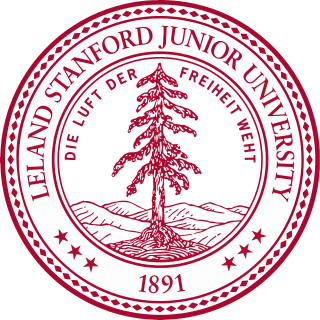
Stanford University is a private research university in Stanford, California. The campus occupies 8,180 acres, among the largest in the United States, and enrolls over 17,000 students.
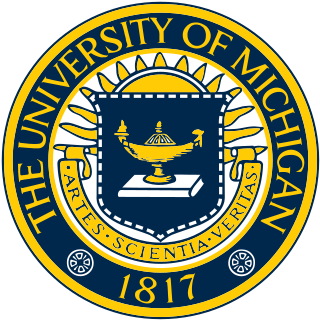
The University of Michigan is a public research university in Ann Arbor, Michigan. Founded in 1817, it is the oldest institution of higher education in the state. Michigan is one of the earliest American research universities and is a founding member of the Association of American Universities.
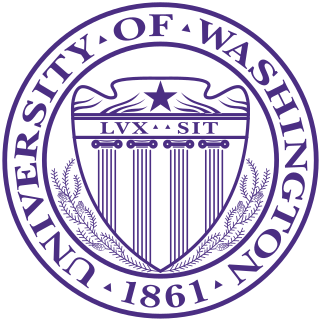
The University of Washington is a public research university in Seattle, Washington. Founded in 1861, approximately a decade after the founding of Seattle, the University of Washington is one of the oldest universities on the West Coast.
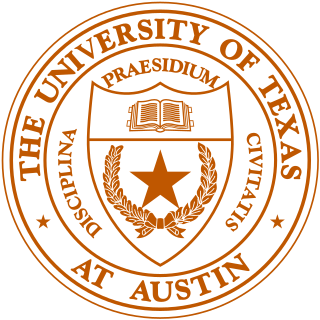
The University of Texas at Austin is a public research university in Austin, Texas. It is the flagship institution of the University of Texas System. With 52,384 students as of Fall 2022, it is also the largest institution in the system.

Carnegie Mellon University (CMU) is a private research university in Pittsburgh, Pennsylvania. The institution was originally established in 1900 by Andrew Carnegie as the Carnegie Technical Schools. In 1912, it became the Carnegie Institute of Technology and began granting four-year degrees. In 1967, it became the current-day Carnegie Mellon University through its merger with the Mellon Institute of Industrial Research, founded in 1913 by Andrew Mellon and Richard B. Mellon and formerly a part of the University of Pittsburgh.

Postgraduate education, graduate education, or graduate school consists of academic or professional degrees, certificates, diplomas, or other qualifications usually pursued by post-secondary students who have earned an undergraduate (bachelor's) degree.

A Master of Science is a master's degree. In contrast to the Master of Arts degree, the Master of Science degree is typically granted for studies in sciences, engineering and medicine and is usually for programs that are more focused on scientific and mathematical subjects; however, different universities have different conventions and may also offer the degree for fields typically considered within the humanities and social sciences. While it ultimately depends upon the specific program, earning a Master of Science degree typically includes writing a thesis.

A research university or a research-intensive university is a university that is committed to research as a central part of its mission. They are the most important sites at which knowledge production occurs, along with "intergenerational knowledge transfer and the certification of new knowledge" through the awarding of doctoral degrees. They can be public or private, and often have well-known brand names.

Google Scholar is a freely accessible web search engine that indexes the full text or metadata of scholarly literature across an array of publishing formats and disciplines. Released in beta in November 2004, the Google Scholar index includes peer-reviewed online academic journals and books, conference papers, theses and dissertations, preprints, abstracts, technical reports, and other scholarly literature, including court opinions and patents.
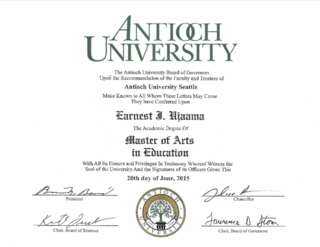
A Master of Arts is the holder of a master's degree awarded by universities in many countries. The degree is usually contrasted with that of Master of Science. Those admitted to the degree have typically studied subjects within the scope of the humanities and social sciences, such as history, literature, languages, linguistics, public administration, political science, communication studies, law or diplomacy; however, different universities have different conventions and may also offer the degree for fields typically considered within the natural sciences and mathematics. The degree can be conferred in respect of completing courses and passing examinations, research, or a combination of the two.

Harvard University is a private Ivy League research university in Cambridge, Massachusetts. Founded in 1636 as Harvard College and named for its first benefactor, the Puritan clergyman John Harvard, it is the oldest institution of higher learning in the United States. Its influence, wealth, and rankings have made it one of the most prestigious universities in the world.

A Doctor of Philosophy is the most common degree at the highest academic level, awarded following a course of study and research. The degree is abbreviated PhD, from the Latin Philosophiae Doctor, pronounced as three separate letters. The abbreviation DPhil, from the English 'Doctor of Philosophy', is used by a small number of British and Commonwealth universities, including Oxford, formerly York, and Sussex, as the abbreviation for degrees from those institutions. PhDs are awarded for programs across the whole breadth of academic fields. Since it is an earned research degree, those studying for a PhD are required to produce original research that expands the boundaries of knowledge, normally in the form of a dissertation, and defend their work before a panel of other experts in the field. The completion of a PhD is typically required for employment as a university professor, researcher, or scientist in many fields.
ResearchGate is a European commercial social networking site for scientists and researchers to share papers, ask and answer questions, and find collaborators. According to a 2014 study by Nature and a 2016 article in Times Higher Education, it is the largest academic social network in terms of active users, although other services have more registered users, and a 2015–2016 survey suggests that almost as many academics have Google Scholar profiles.

A scholar is a person who is a researcher or has expertise in an academic discipline. A scholar can also be an academic, who works as a professor, teacher, or researcher at a university. An academic usually holds an advanced degree or a terminal degree, such as a master's degree or a doctorate (PhD). Independent scholars and public intellectuals work outside of the academy yet may publish in academic journals and participate in scholarly public discussion.